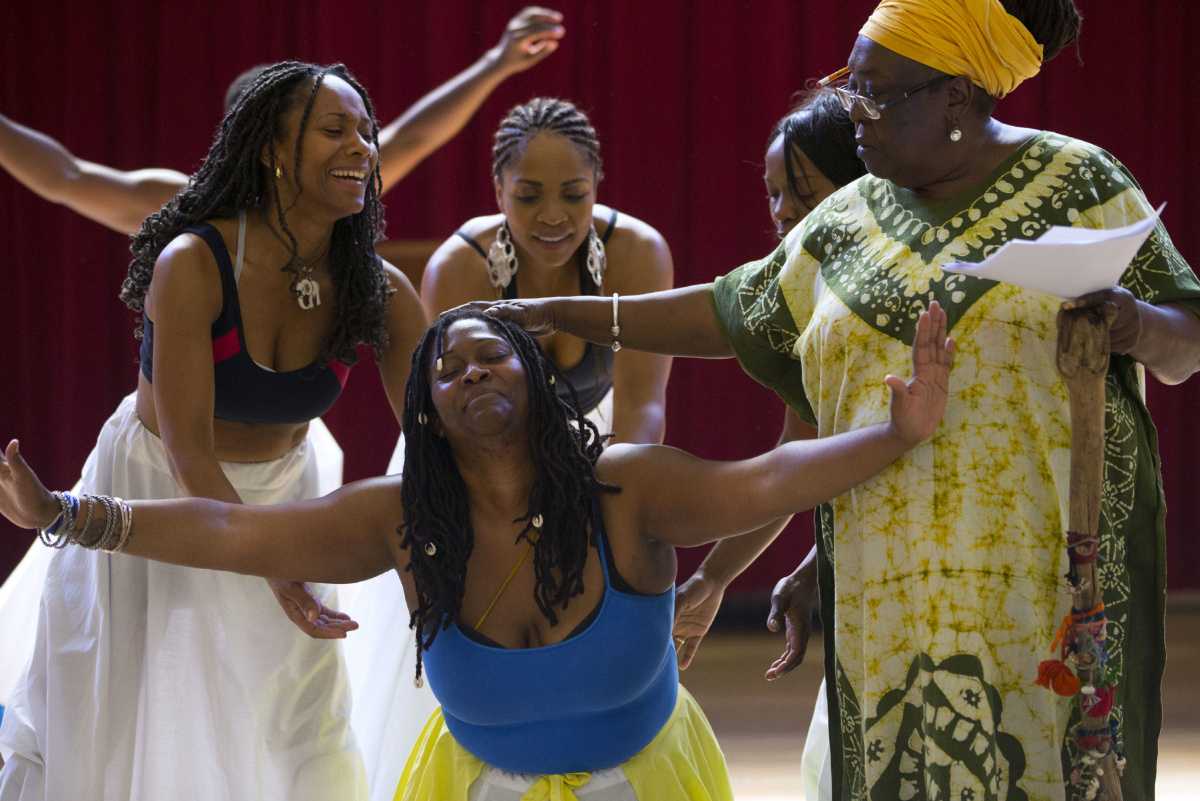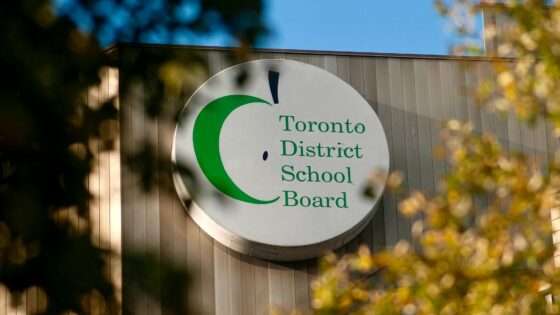on
BY: ALYSSA MAHADEO
It’s February and Black History Month events are in full swing. Every February, Canadians are invited to participate in Black History Month festivities and events that honour the legacy of black Canadians, past and present.
In keeping with tradition, there are many organizations throughout the city working to keep the history of black Canadians alive by continuing to educate the masses and showcasing the stories that many Afro Caribbean’s haven’t yet discovered about their own culture.
“Culchahworks has been around for a little under six years and we have the mandate to celebrate stories that are drawn principally from the African Canadian, Caribbean Canadian and African American cultural legacies that we feel have universal resonance,” explains Culchahworks Founder and Artistic Director Andrew Craig.
Culchahworks Arts Collective is a Toronto-based not-for-profit arts organization, established in 2013. The name and unique spelling are drawn from the pronunciation of the word ‘culture’ in Jamaican Patois.
“We recognize that there are stories that come from the black community, from our own experience that are extraordinarily important, and extraordinarily relevant but are not likely to be told by the mainstream media,” Andrew shares.
Culchahworks recognizes that these stories are a part of the fabric of the culture of Canada and that the average person can only really name a few events from our history, and only really cover events that include the English, French and First Nations People.
“Somehow we haven’t managed to connect in our minds and through the history that we teach our children that all the various people and ethnicities races, colours and mixes that are here now didn’t just arrive yesterday and didn’t happen by accident,” Andrew says. “There are a multiplicity of stories from each of these communities and all of those stories weave together to create what Canada is now.”
In the past several years Culchahworks Arts Collective has been focusing on producing content, determining the stories they want to tell and median in which to best share it.
“Sometimes it’s a concert, sometimes it’s theatre, sometimes it’s dance, and sometimes it’s video and sometimes it can be all of the above,” Andrew explains. “Many times it depends on the story that we are trying to tell.”
Whether it be through live concert presentations, musical theatre, dance, film and television, documentary, or a combination of any of the above, Culchahworks strives to raise the bar for multimedia art presentation and community engagement in Canada, while ensuring that important figures and events from our heritage are honoured and preserved. Entertainment, education, respect, and inspiration are the essence of every Culchahworks initiative.
2019 marks the beginning of a two-year period in which Culchahworks examines the cultural relationship between Canada and Jamaica, through two distinct historical lenses. This month Culchahworks will be hosting two events, a Fish & Rum Workshop Presentation Saturday, February 16th, and the Titans of Toronto Reggae Concert Saturday, March 2nd.
The Fish and Rum Workshop is the very first look of a presentation that has to do with the illicit trade that took place between the islands of Newfoundland and Jamaica during the prohibition era when Jamaican’s began shipping empty rum barrels to Newfoundland in exchange for salted cod.
“I learned this story from a cookbook published by The Real Jerk restaurant in Toronto, that I received many years ago,” Andrew shares. “There was a page with the recipe for Cod Fritters and it tells a story that somewhere along the way someone decided that no one would notice if they sent their B grade cod. Well the Jamaican’s noticed and retaliated by sending their B grade product and what precipitated was a race to the bottom in which people started dying from tainted rum and tainted fish,” he explains.
“It wasn’t until that the people from each side realized that they had the makings of an international incident on their hands that they stopped this practice and they went back to doing what they were doing before, just as the prohibition era was coming to an end.”
Reading the story, Andrew thought it was fascinating, this was something he hadn’t known about, and he was almost certain, many others were not aware of as well. “I thought to myself somewhere there’s a deeper story in there that’s not being told.” He reached out to historians to learn more, and he learned so much more, that it prompted him to write a play.
On February 16th Culchahworks will be hosting a stage reading workshop presentation so the public can have a first listen as to what this can become, and then hopefully bring the full production to the stage in February of next year. “This is a chance to try out these words in front of an audience, get some feedback to see what works and see what doesn’t, which is why it’s free to the public with complimentary food and refreshments.”
Their second event on March 2nd, the Titans of Toronto Reggae Concert as with many of their events isn’t just another Reggae Concert. The Titans of Toronto Reggae Concert is the centerpiece, their latest project documenting the history of the Eglington West Community in Toronto.
“Everybody knows by now that the City of Toronto is building this new subway line, and while it’s a sign of progress, people are only now starting to talk about the disruptive nature it will have on the Caribbean community who either run their businesses or reside in the Eglington West neighborhood,” Andrew explains. “People don’t own the properties they occupy, the property value is going to rise and people will be forced out of the neighborhood and eventually the city altogether.”
The Eglington West Project is working to document the neighborhood as it stands and intends to bring attention to the situation in the hope that it helps the residents and the businesses there to have some agency in determining the future of the neighborhood while also documenting the birthplace of the Toronto reggae sound because that’s where it began.
“The centerpiece of this project is the concert where we have brought as many of the significant actors from the 60s-70s Toronto Reggae scene together for a one night only, one show only experience. These are people who are international superstars and the sound they have created was born in the Eglinton West Neighborhood making their contributions to his project even more meaningful.”
The Culchahworks Arts Collective is about finding and telling stories in innovative ways that engage audiences and educate the young people to know what they’re about.
“It’s important to showcase the artists, but it’s even more important to make sure that our stories are being told. In the last couple of years, we have really started to hone in our focus on Canadian stories, we recognize the importance of all the work we have done before and we are very proud of it, but we feel like there are so many untold Canadian stories that we need to change our focus and we need to really push the educational side of what we do.”
“We are very deliberately didactic, we want people to come out and say ‘you know I loved that show and I never knew…or I can’t believe I didn’t know…’ and if we’ve managed to do all of that then we’ve done our job because eventually, these things become a part of the larger narrative, we now deliberately create all of our content so that we can turn it into educational material which over the course of the next couple of years will find their way into the school system.” Andrew shares.
To register for the Fish & Rum Workshop Presentation visit Ticket Gateway to save your spot and you can purchase your advanced tickets to the Titans of Reggae concert on Eventbrite.
Stay in the loop with exclusive news, stories, and insights—delivered straight to your inbox. No fluff, just real content that matters. Sign up today!













